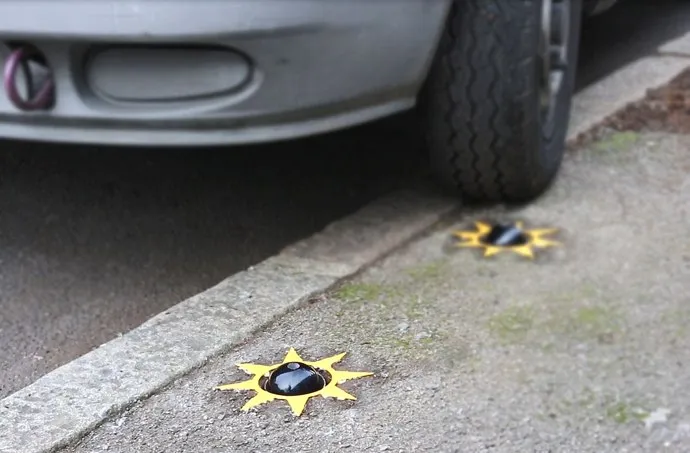
It’s only the size of a small orange but it’s been called deadly by some and labelled vicious by others.
Yet many see it as the cat’s whiskers when it comes to stopping drivers from parking on the pavement – “sidewalk” to North Americans.
It’s the Catclaw and, according to a recent report by the popular UK newspaper Daily Express, it would puncture the tyres of any vehicle that were to drive over it.
It costs only a few pounds to manufacture and can be installed in the road surface in three minutes.
The Environment Transport Association (ETA), a British carbon-neutral provider of vehicle breakdown, bicycle and travel insurance for the environmentally concerned consumer, says it poses no threat to pedestrians: a person standing on top of the device would not be heavy enough to activate it.
The Express notes that Catclaw inventor Yannick Read, of the ETA, says he was inspired by the cat’s eyes that peek up from the road surface to reflect the lights of oncoming cars and guide the driver along a safe route.
The device requires the weight of a vehicle to expose the spike.
However, the ETA has warned that a fully-laden cargo bike could possibly expose the spike and receive a punctured tyre. But the spike also retracts automatically back into the safety housing.
The Express quotes Read saying that “there’s a real problem with drivers parking on the pavement or driving on the pavement because they can’t be bothered to wait".










